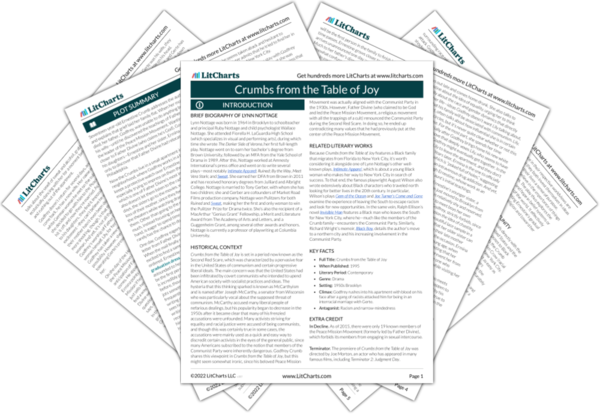Although it was vilified in the United States during the 1950s, the Communist Party fiercely advocated for justice and equality. As such, many progressive Americans were sympathetic to the communist cause. In fact, the Communist Party even helped provide some of the Scottsboro Boys (whom Godfrey mentions in the play’s prologue) with legal representation, so the audience might think that Godfrey, too, would have a soft spot for the Party. However, Godfrey is clearly like the many Americans who make a point of denouncing communism. To that end, many people who resisted social change in the 20th century often unfairly accused activists and progressives of engaging in nefarious communist activity, using this as a quick and easy way to besmirch a person’s name in society. This kind of hysteria came to be known as “Red Scare,” and since the Communist Party was outspokenly in favor of racial justice and equality, Lily suggests that “Red Scare” could easily be called “black scare,” implying that the country’s fear of communism is rooted in racism.
